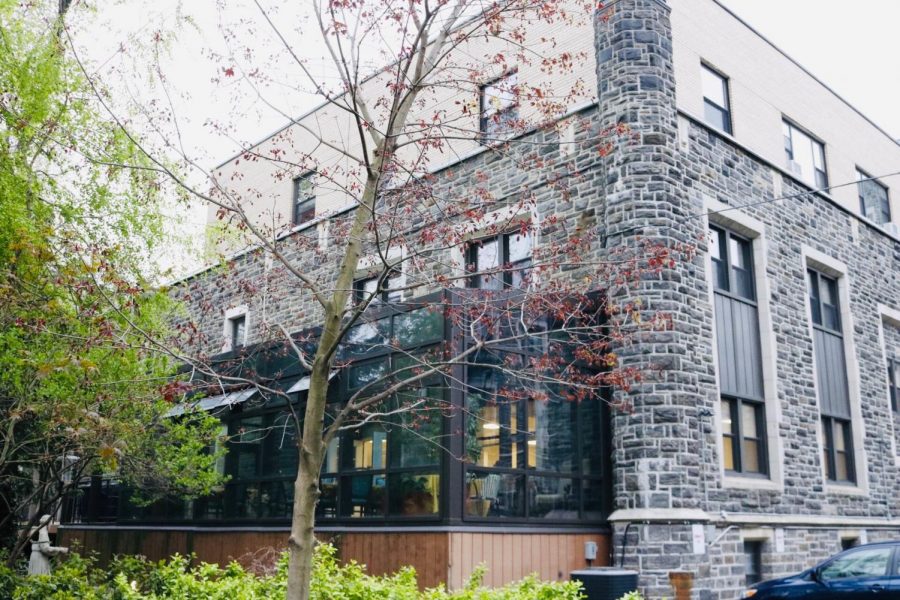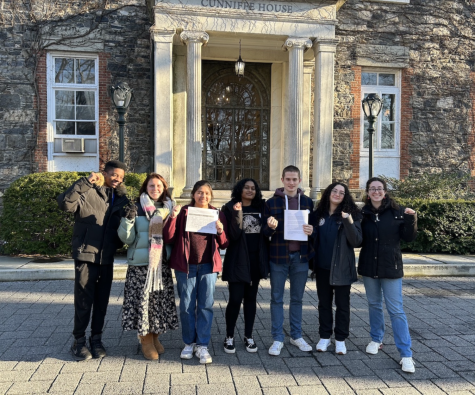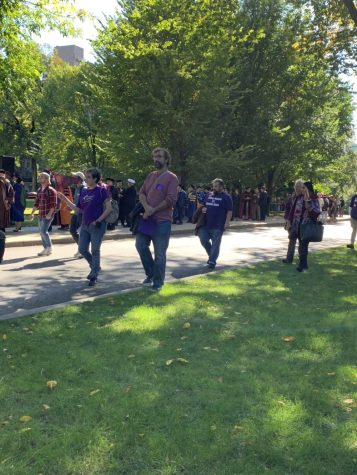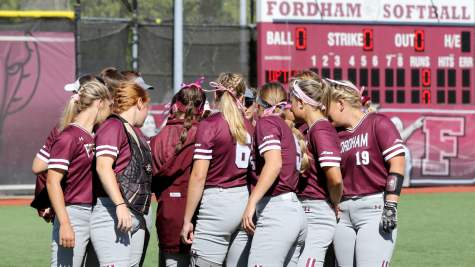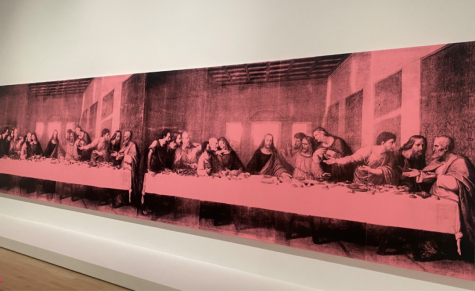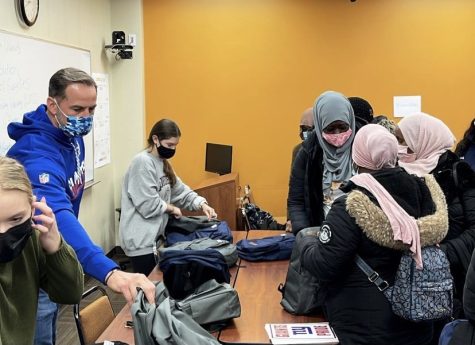Paul Elie, FCRH ’87, Addresses Experience with Clerical Abuse
Correction: A previous version of this article stated the act of abuse by Rev. Edward Zogby, S.J., took place in Lowenstein. The abuse took place at the West Side Jesuit Community. Paul Elie, FCRH ’87, frequently saw Zogby at Lowenstein, but no physical abuse took place there.
By Erica Scalise
Alumnus, two term Fordham College board member and author Paul Elie, FCRH ’87, accused Rev. Edward Zogby, S.J., the associate vice president for Lincoln Center for 10 years during the 1980’s, of sexual misconduct in an article from The New Yorker released on April 8. Zogby was a resident of Murray-Weigel Hall and died there in 2011.
In the article entitled “What Do The Church’s Victims Deserve,” Elie weaved together a historical summary and personal narrative recounting the Catholic Church’s history of clerical sex abuse.
The article also names Rev. Joseph Towle, S.J. whom Elie volunteered under at a Catholic community center.
According to The New Yorker, Towle, who was credibly accused of sexual misconduct in 1971, lived at the infirmary for elderly Jesuits on the Fordham campus and engaged in internal ministry after he was removed as principal at St. Ignatius School in the Bronx.
Towle is listed as one of the friends who surrounded Rev. Daniel Berrigan, S.J. when Berrigan died at Murray-Weigel in 2016, according to a statement by the Berrigan family in an article by Ignatian Solidarity Network.
Towle is also listed under the Northeast Province’s list of priests with credible allegations of sexual abuse of a minor. Zogby is not listed.
With the addition of Zogby and Towle and previous reporting by The Ram, The Ram has tracked 10 priests who have lived at Murray-Weigel with credible accusations of sexual misconduct of a minor brought against them.
Bob Howe, director of communications for the university, said the article raises serious and disturbing allegations which will be reviewed by the Special Committee of the Board of Trustees which excludes Jesuit members of the Board or management at Fordham.
“As Father McShane and Board Chairman Daleo said in their January letter to the Fordham community, it is incumbent on leaders at affected institutions to support the survivors and acknowledge the long-term harm that was inflicted upon them,” said Howe. “It is also critical to ensure that policies and procedures are in place to prevent this from ever happening again, which is why an independent Special Committee of the Board is reviewing allegations of abuse and examining appropriate preventative and remedial measures, with the assistance of outside legal counsel.”
Elie’s account in The New Yorker traces several cases of Pope Francis and Cardinal Timothy Dolan’s attempts to remedy what church officials often call a crisis.
“The problem is more enduring and more comprehensive than that,” Elie wrote in the article.
Several years later, after Elie wrote an extended narrative about his encounter with Zogby when obtaining a master’s at Columbia University, and following the re-emergence of clerical sex abuse in the media, he was invited by The New Yorker to write the piece.
“When these things were in the news over the summer, of course I felt that I had to say something in writing,” he said in an interview with The Ram. “I wanted to deal with this story which is so complex, using the most complex means available, long form narrative journalism.”
A large portion of the article details personal anecdotes, including Elie’s encounter with Zogby in which he woke up to the priest exposed and bent over him, making advances in a Jesuit Community at West 98th Street. Elie said his first instinct was to deal with the experience on his own, just as hundreds of thousands of others have. He said he frequently visited Zogby at Fordham’s Lowenstein building. Eventually, he reached out to the university.
“When the sexual abuse crisis went into high gear in 2002, I called Fordham to report this, and weirdly enough, I got on the phone with one of my old professors who was extremely defensive and befuddled by the whole thing,” said Elie.
He was instructed to call the province, but did not.
“I was always mindful of the fact that I was not a minor when the violation took place,” said Elie.
Michael Gabriele, director of communications for the Northeast Province, confirmed Zogby was not on the Northeast Province’s Jan.15 list.
“Fr. Ed Zogby was not on our list released in January because there were no credible allegations of abuse of a minor against him,” said Gabriele.
Though the province’s list only includes credible allegations against minors, all allegations, whether they involve a minor or an adult, are taken seriously and investigated, according to Gabriele.
“The Jesuits do not tolerate sexual abuse of any kind,” said Gabriele. “The list we released in January was specific to credible allegations of abuse of minors because of the recent revelations that have led the people of God to rightly desire greater accountability from the leadership of the Church in this area. The Jesuits are the first for a religious order to do so and to provide that kind of transparency.”
According to Elie, gathering information for the article had its challenges, specifically in obtaining information from the province. When he reached out to the Northeast Province, he was put in touch with Rev. Philip Judge, S.J.
“He didn’t have all of the facts right about Fr. Towle,” said Elie. “He was supercilious. He didn’t have any wish to figure out or communicate anything other than what was on that list. Such information he gave, he gave grudgingly.”
Judge did not respond to comment in time for publication.
Despite these events, Elie said he found Fordham to be a remarkable university and his relationship with the university is ongoing.
He said he would be interested to see Rev. Joseph M. McShane, S.J., president of the university, respond to the article.
“I don’t really know how he handles things as a college president. I just know that something serious happened,” said Elie. “It really happened and I really wrote about it and it’s really in The New Yorker.”
Elie said it was at Fordham that he really got a strong sense of the Catholic literary and artistic tradition that’s been the main current for his work, including the article.
“I think that the way we understand things is by saying what happened in the most truthful and subtle and nuanced way possible,” said Elie. “That’s what I’ve tried to do in this article, and I think something like that approach is what the church needs if it’s going to move forward.”





































































































































































































